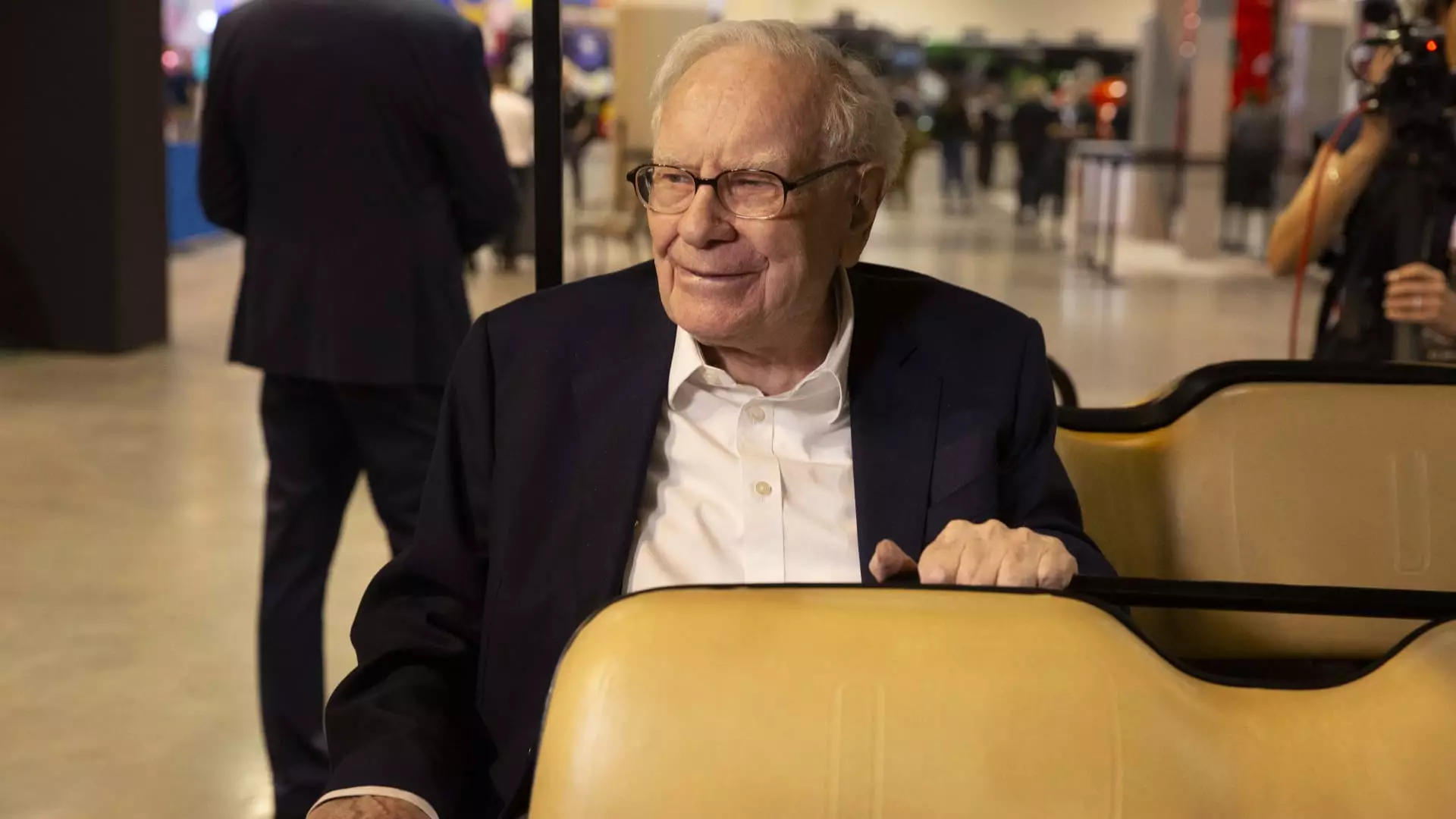Berkshire Hathaway, led by the legendary Warren Buffett, has recently reported an impressive surge in operating earnings that has momentarily boosted investor confidence. Following the release of its quarterly earnings, Class A shares experienced a modest increase of 1.2% during premarket trading. The company’s operating profits for the fourth quarter soared by an astonishing 71%, reaching $14.5 billion. This substantial performance was largely driven by remarkable gains in insurance underwriting, which witnessed a 302% rise compared to the previous year, recording profits of $3.4 billion.
However, this positive news has been accompanied by a significant slowdown in investment gains from Berkshire’s portfolio. The fourth quarter saw these gains plummet to $5.2 billion, a sharp decline from $29.1 billion reported in the same quarter a year earlier. Moreover, Berkshire has now sold more equities than it has purchased for nine consecutive quarters, with total equity sales exceeding $134 billion in 2024. This trend has left many investors questioning the future strategy for Berkshire’s substantial cash reserves.
Berkshire Hathaway’s cash pile has reached unprecedented levels, climbing to a staggering $334.2 billion, up from $325.2 billion at the end of the previous quarter. This accumulation of cash has ignited speculation among shareholders about Buffett’s intentions and strategies moving forward. In his annual letter, Buffett sought to quell some of the concerns by stating that the cash increase does not reflect a loss of interest in stock and business acquisitions. He reiterated that the vast majority of shareholder funds remain invested in equities and insisted that this preference is unlikely to change.
Buffett pointed to inflated valuations in the market as a major reason for his conservative approach, expressing that frequently, “nothing looks compelling.” This admission has led to mixed feelings among investors, with some expressing impatience over the lack of activity in deploying capital, while others maintain faith in Buffett’s ability to identify significant opportunities during economic downturns.
Warren Buffett’s unwavering confidence in his chosen successor, Greg Abek, reflects a commitment to the future and the strategic management of Berkshire’s assets. Buffett’s respectful comparison of Abek to the late Charlie Munger signals an intent to preserve the company’s core principles while adapting to evolving market conditions. This commitment to succession planning and investment acumen is crucial, especially as Buffett navigates the challenges of handing the reins over to the next generation.
Investors have so far remained cautious yet hopeful that Berkshire’s conservative position will ultimately yield substantial rewards when market conditions shift. Bill Stone, the chief investment officer at Glenview Trust Company and a Berkshire shareholder, emphasized the importance of this financial prudence. He stated that shareholders should take comfort in the company’s resilience, noting its strategic positioning to capitalize on opportunities that arise during economic crises.
Recent Performance and Market Outlook
Despite the current challenges, Berkshire Hathaway has concluded a strong fiscal year with an impressive 25.5% increase in 2024, outperforming the S&P 500. Such performance marks the company’s best year since 2021, indicating resilience amid market volatility. As the stock experiences a further rise of more than 5% in 2025 thus far, optimism lingers among analysts regarding Berkshire’s potential for growth.
While the surge in operating profit offers a glimpse of strength, the persistent buildup of cash reserves has left many shareholders pondering future strategies. As Buffett navigates this intricate landscape, his commitment to maintaining a long-term investment philosophy will be critical. Only time will tell how Berkshire Hathaway’s decisions regarding its cash surplus will influence the company’s future trajectory and shareholder value.

